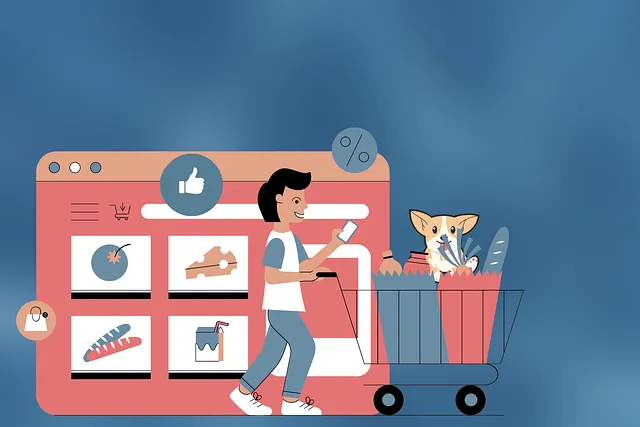In today's digital era, medical researchers face significant data security challenges with sensitive patient information. Encryption is crucial for protecting global private internet connections, especially through Private Internet Access (PIA), which fortifies defenses against cyber threats. PIA enables secure collaboration and data exchange, safeguarding medical records, clinical trials, and intellectual property from unauthorized access. This facilitates international research partnerships while maintaining patient privacy, fostering innovation, and enhancing global health outcomes.
In today’s digital age, confidential data is a precious commodity, especially in research fields like medicine. As global collaboration becomes essential, securing sensitive information from cyber threats is paramount. This article explores the critical role of encryption in protecting private data and introduces Private Internet Access (PIA) as a robust solution for medical researchers worldwide. We delve into how PIA safeguards confidential information during international collaborations, ensuring research integrity and participant privacy.
- Understanding Confidential Data and Its Risks in Research
- The Role of Encryption in Securing Sensitive Information
- Private Internet Access (PIA): A Secure Solution for Medical Researchers
- Implementing PIA to Protect Global Research Collaboration
Understanding Confidential Data and Its Risks in Research

In today’s digital age, medical researchers worldwide are navigating a complex landscape of data security challenges. As they delve into groundbreaking research, often involving sensitive patient information, understanding confidential data and its risks is paramount. Every piece of data, from electronic health records to experimental findings, carries potential consequences if exposed or misused. This is especially true in the private Internet access realm, where researchers rely on secure connections to safeguard their work.
The dangers of data breaches extend far beyond financial losses; they can erode public trust, compromise patient privacy, and hinder scientific progress. Protecting confidential data requires a multi-layered approach, including robust encryption methods, strict access controls, and regular security audits. Medical researchers must stay vigilant, adopting best practices to ensure that their digital interactions maintain the integrity and secrecy of sensitive information, even as they collaborate globally via Private Internet Access for Medical Researchers Worldwide.
The Role of Encryption in Securing Sensitive Information

In today’s digital era, where information flows freely and securely through the private internet access for medical researchers worldwide, encryption plays a pivotal role in safeguarding sensitive data. It acts as a robust defense mechanism, transforming comprehensible data into an unreadable format, ensuring that only authorized parties with the correct decryption keys can access it. This is particularly crucial for businesses dealing with confidential information like patient records, financial details, and intellectual property.
Encryption ensures that even if data is intercepted or stolen, it remains secure and unusable without the right key. Advanced encryption algorithms, combined with robust security protocols, provide a comprehensive solution to protect against evolving cyber threats. This is especially critical for medical researchers who must maintain the privacy and integrity of patient records while enabling seamless collaboration and access across global networks.
Private Internet Access (PIA): A Secure Solution for Medical Researchers

Private Internet Access (PIA) stands as a robust and secure solution tailored specifically to meet the stringent data encryption needs of medical researchers worldwide. In an era where digital security is paramount, PIA offers encrypted VPN services that safeguard sensitive medical information exchanged over global networks. This is particularly crucial in research collaborations involving multi-national teams who rely on remote access to critical datasets and communication channels.
By leveraging PIA’s advanced encryption protocols, medical researchers can confidently navigate the internet without worrying about unauthorized access to their data. This ensures the privacy and integrity of patient records, clinical trials, and other confidential research materials, fostering a secure environment for collaboration and innovation. Medical professionals and institutions alike benefit from PIA’s commitment to protecting private information, enabling them to focus on what matters most: advancing medical knowledge and improving global health outcomes.
Implementing PIA to Protect Global Research Collaboration

In today’s interconnected world, global research collaborations are becoming increasingly vital for advancements in medicine and science. However, this collaboration comes with challenges, particularly when it comes to sensitive data exchanged between researchers across borders. This is where Private Internet Access (PIA) plays a crucial role as a game-changer in data security. PIA offers an encrypted tunnel for secure communication, ensuring that medical researchers worldwide can collaborate without compromising confidentiality.
By employing PIA, researchers can protect their intellectual property and patient data from potential threats. It enables them to access and share information safely, even in public networks, thereby fostering a robust and secure research environment. With PIA, the intricate details of global collaborations can remain confidential, leading to more meaningful insights and breakthroughs without the worry of data breaches or unauthorized access.
In today’s digital era, protecting confidential data is paramount for business professionals, especially medical researchers worldwide. By understanding the risks associated with sensitive information and implementing robust encryption solutions like Private Internet Access (PIA), professionals can safeguard their global research collaborations. PIA offers a secure framework, ensuring data privacy and integrity during transit, and fostering a culture of trust and transparency in the digital landscape.
